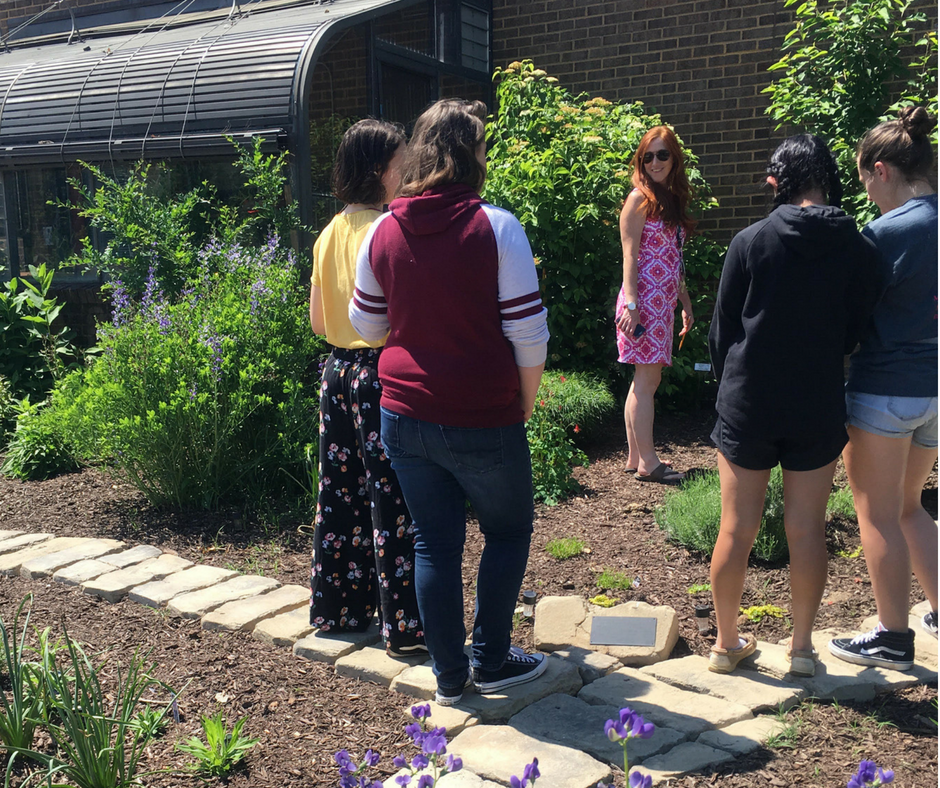 It was the last day of school, a sweltering day in June 2018 at Oakland Mills High School in Columbia, Maryland.
It was the last day of school, a sweltering day in June 2018 at Oakland Mills High School in Columbia, Maryland.
Fifteen students, all members of the school’s environmental club, sat in a classroom discussing their upcoming plans. Not for the next school year, but this summer.
“We can come and water the plants!” several students chimed in, referencing the school garden. High school students volunteering to spend more time at school during summer break? Amy Connor, the club’s faculty sponsor, saw my surprise and smiled.
My visit included a walk through the garden with the environmental club students. I saw that the space was flourishing. There were dozens of plants in bloom, and students were able to speak eloquently about them and why they were selected for the garden.
The Oakland Mills garden is the result of a microgrant the environmental club received last fall as part of NCSE’s Science Booster Club’s mission to bring climate change education to public spaces, including schools. The grant provided the club with $300 in order to help restore their school’s garden, a memorial for a student who had passed away. When I first visited, to award the microgrant, the garden was not much more than a small plot of dirt with some invasive plants.
Over the course of the school year, Connor and I stayed in touch. I knew the students were hard at work researching to find native plants that would be appropriate to plant in the garden—plants that have evolved to thrive in a specific soil and climate. Ensuring that native plants are present is important because they play a role in attracting local animals and pollinators, supporting the overall ecosystem. As students figure out which plants are native, delving into the adaptations they have made to flourish within local conditions such as climate, they combine NCSE’s twin focuses on evolution and climate change.
The environmental club also made the effort to reach out to the community—and the community responded overwhelmingly. Four master gardeners, a local hardware store, and a local nonprofit have all donated time and money to help the club, culminating in a gardening day where parents, teachers, and students all worked together to install the work.
Now, just a few short months later, the garden is in full bloom. Staff members eat lunch in the garden. And when the club is outside working after school, students who aren’t in the club stop by to help out.
Connor noted that making the garden a flourishing, community-based reality would not have been possible without the Science Booster Club grant.
“This is a project that we had been thinking about for a long time, but we needed materials in order to get started,” she said. “By receiving this grant, we received the extra boost of energy that we needed in order to get started.”
Working with Connor and the environmental club this year has been a real pleasure. The students and the plants have blossomed and flourished—fulfilling, in a literal, living, and delightful way, the SBC goal of giving roots to STEM.
Click here to learn more about our Science Booster Club program.

